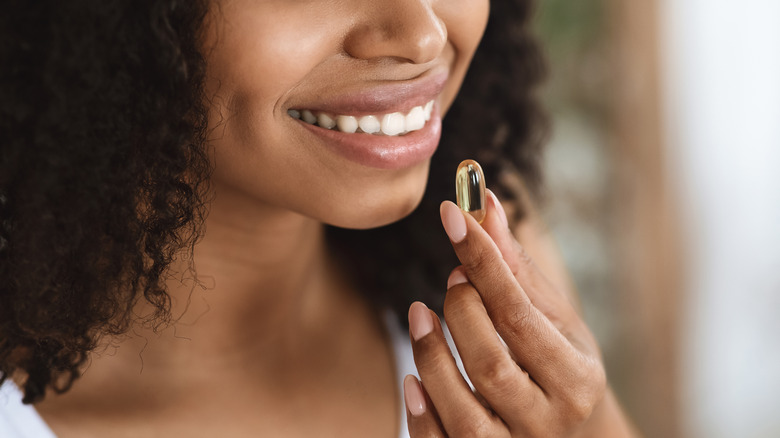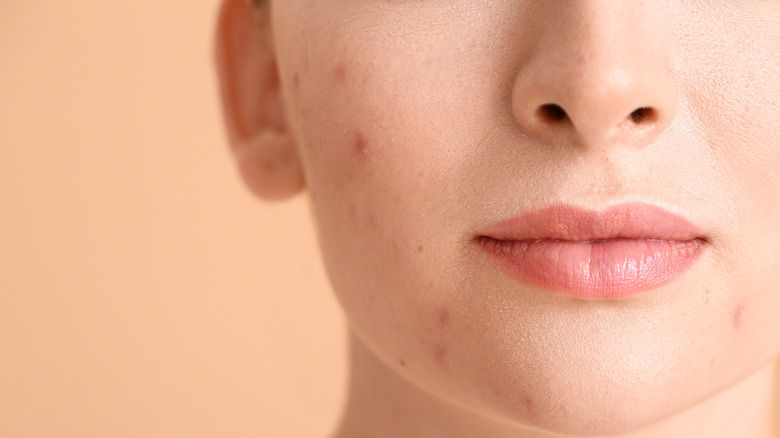What's The Connection Between Omega-3s And Acne?
Many people may not know the real benefits of omega-3 fatty acids. These fatty acids aid in many bodily functions to help your body work optimally. They play a role in lowering inflammation which boosts brain and heart health risk by lowering high triglycerides, a fat found in the blood that can lead to heart attacks and strokes (via WebMD). Omega-3s can also help rheumatoid arthritis, ADHD, asthma, and Alzheimer's disease.
Since your body doesn't make omega-3 by itself you need to consume it (via Cleveland Clinic). The best way is to eat fish a couple of times a week which contains more omega-3 than plant-based foods. In fact, when you eat fish every day, you may reap added health benefits that range from better heart and brain health to less risk of blood clots. However, if you don't like fish, taking fish oil supplements every day may also boost health and provide protection against disease (via Healthline).
Interestingly, regularly consuming omega-3 may also affect your skin and help quell acne. Here's how.
How omega-3s may affect acne
Having acne can be physically and emotionally painful. The pimples and cysts that form can throb and burn, not to mention hinder self-esteem. Yet, acne may tell you something about your health. Though there are several topical treatments, the underlying cause of some cases of acne is an inflammatory response by the body. This is known as inflammatory acne (via Verywell Health). These types of pimples occur when bacteria infects blocked pores.
"Inflammation is the body's natural mechanism for dealing with basically anything it doesn't like, including bacterial overgrowth and accumulation of dead skin cells in a pore," dermatologist S. Tyler Hollmig, MD tells Everyday Health. "That's what causes certain types of acne to become red, raised, tender, and juicy."
A 2017 study published in "Prostaglandins & Other Lipid Mediators" found that people who develop cystic acne may have high levels of inflammation while people who have less acne or no acne, may have low inflammation levels. Since omega-3s work to lower inflammation, some researchers think that reducing inflammation by increasing omega-3s can actually help reduce acne.
Ways to get omega-3s in your daily diet
Jane Neville Dudik, founder of The Acne Treatment Center says in a blog post, "A friend of mine who is a doctor in Canada also treats acne. When a patient can't afford much in the way of treatment, he puts them on high doses of Omega 3 and does nothing else." Dudik continues, "He typically sees a 50% to 60% reduction in lesions in three to four months."
Incorporating more omega-3s into your diet or taking a fish oil supplement may have many positive benefits. One way to take in extra omega-3 is to increase your intake of fish. Fish contains the highest amounts of essential fatty acids (Medical News Today). At least twice a week, try to eat salmon, shrimp, mackerel, or sea bass. Vegetarians can load up on chia seeds, flaxseeds, seaweed, walnuts, and edamame.
If you rather just take a supplement to ensure a daily boost, consult your doctor about how much is right for you. Though you can get most of the only vitamins you actually need on a daily basis from food, a supplement can sometimes be an easier solution.


